Text
Interest Check for Two Upcoming TF Zines
I'm in a zine-ing mood, apparently! (Is that a verb? Well, it is now. You Are Welcome.) Below are interest check announcements for two (2) TF zines. If either sounds interesting, please fill out my lil surveys. They're open for responses until Midnight May 31st, PST.
Supernova: A Starscream Tribute Zine
Celebrating all facets of the Seeker, from his cunning and ambition to his vulnerability and unexpected heroism. Whether you view him as a tragic hero, a relentless villain, or something entirely unique, we invite you to express your interpretations through fiction, art, comics, poetry, or essays. Find out more HERE.
JetPack: A Celebration of Seekers
Delving into the lives and culture of Seekers, from their history and traditions to their religion, mythology, food, and celebrations. We are particularly eager to spotlight lesser-known Seekers such as Slipstream, the Rainmakers, the Coneheads, and even original Seekers created by our contributors. Find out more HERE.
6 notes
·
View notes
Text
Switch by Dark Star of Chaos
7436 Words
32 pages (5.75 x 8.5 inches)

Fandom: Transformers
Pairing: Skyfire/Starscream
Back in 2016, my good friend @darkstarofchaos asked if I'd be up for beta-reading their very first smut story. Nothing could have prepared me for the kinky masterpiece which subsequently arrived in my inbox. This has it all! All the smut, all the feels, and a delicious helping of kink. In the tradition of 'firsts,' it seemed only fitting that this delightful tale become the subject of my first real fanbinding project. I hope my efforts do it justice!
Fonts:
Body: Lora
Titles: Josephsophia
Materials:
Bookcloth: Lineco Black
Cover Paper: Chiyogami Cranes, blue
Inside Cover: Strathmore Artagain Drawing Paper, Coal Black
Text Block: 80 lb white, matte finish, Londonberry linen thread 18/3, ivory
Being my first real attempt at ficbinding, it took me a while to figure out to do it! I started off with a half-sized version of the book, printed out on my home inkjet printer, just to make sure the pagination was working. The resulting booklet was so cute that I couldn't resist making a cover for it, though, so it's literally a baby version! Full instructions for the binding method I used can be found in Das Bookbinding's video on how to bind a single-section pamphlet.
Many thanks to the good folks at @renegadepublishing for inspiration and advice at various stages of this project! It's not an exaggeration to say I couldn't have done it without them.
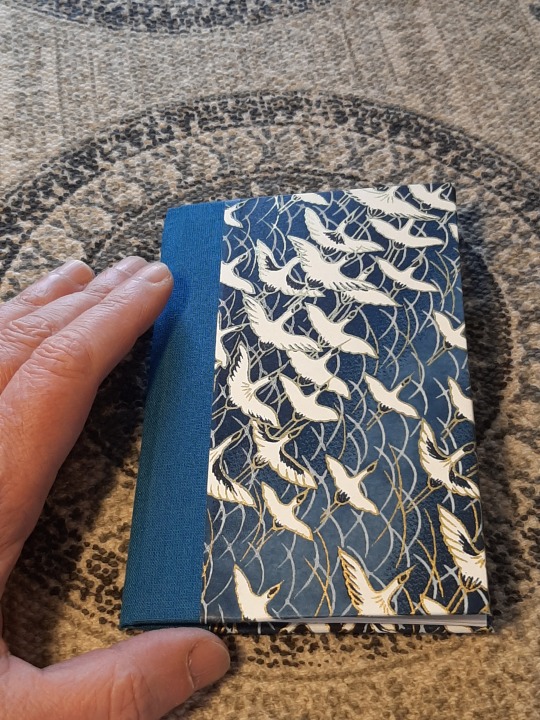
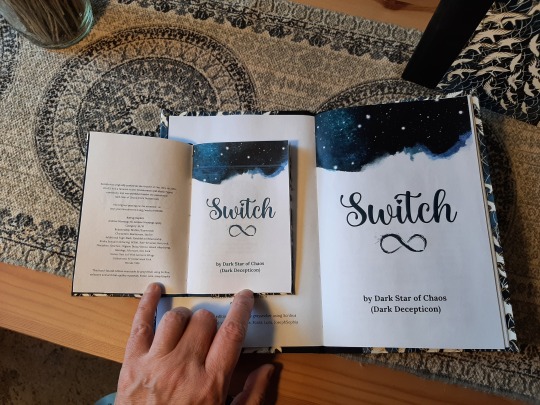

25 notes
·
View notes
Text
“One man’s cringe is another man’s epic” and “a flawed story is still a thousand times better than a story never told” are two pieces of advice that a lot of people aspiring to be writers really need to take to heart. Stop tearing yourself up over getting every little insignificant thing right.
65K notes
·
View notes
Text
How to Balance Pacing
Slowing down the pace:
1) Confuse your protagonist. Is there a puzzle or obstacle that your characters have to solve in order to proceed? Can you make it harder for them? Or does solving one problem lead to an even bigger one?
2) Steal something away from your protagonist that they need for their next step. The dragon rider can’t find his dragon. The knight that is about to ride into battle broke his sword moments before.
3.) Add subplots. For seamless pacing, jump back and forth between your different plots. Just when something big is about to be revealed in the main plot, steer your readers off course into a subplot so that they’re on the edge of their seat waiting for you to return them to the main plot. Do this with your subplots as well for a back and forth game of suspense.
4) Make your sentences longer with more details. For a scene or moment that you want to highlight, drag it out with heightened details. Think of it as a slow motion scene in a movie.
5) Introspection. Have your character think, reflect or consider their next steps. Inner monologues and consciousness can help the reader to understand misbeliefs, flaws and motivations of a character as well. (Doing this in the middle of a fast-paced scene will slow it down, so be cautious where you use this).
Quickening the pace:
1) Set up a real ticking clock. The time is counting down and your protagonist needs to finish something in a limited amount of time. A tomb raider has only five minutes to find the relic and escape before they’re shut in the cave forever.
2) Increase the pressure on your protagonist. Put obstacles in between them and their goals, have an ex return to town, cause drama between them and their friends, place their biggest fear right in front of them, increase the romantic/sexual tension between them and a love interest.
3) Shorten your sentences/details. Quick action scenes should have short and to the point descriptions. The more details you add, the slower it will feel. Picture an action scene in a movie… punches flying left and right. There is no time to think or observe tiny details.
4) Add a loose cannon. A character who is unpredictable and that the characters worry most about. The tension of what they might do next can help drive your pacing, make the story feel more unyielding.
5) Balance your elements. Make sure you don’t write in huge chunks of just one element. Scenes need to be balanced with dialogue, narrative, action, setting, character, etc. Your pacing can get thrown out of wack if one whole scene is purely a monologue and then the next is solely dialogue. Weave them together!
Instagram: coffeebeanwriting
Source: Plot Perfect by Paula Munier | Writersedit
3K notes
·
View notes
Text
Hey btw, if you're doing worldbuilding on something, and you're scared of writing ~unrealistic~ things into it out of fear that it'll sound lazy and ripped-out-of-your-ass, but you also don't want to do all the back-breaking research on coming up with depressingly boring, but practical and ~realistic~ solutions, have a rule:
Just give the thing two layers of explanation. One to explain the specific problem, and another one explaining the explanation. Have an example:
Plot hole 1: If the vampires can't stand daylight, why couldn't they just move around underground?
Solution 1: They can't go underground, the sewer system of the city is full of giant alligators who would eat them.
Well, that's a very quick and simple explanation, which sure opens up additional questions.
Plot hole 2: How and why the fuck are there alligators in the sewers? How do they survive, what do they eat down there when there's no vampires?
Solution 2: The nuns of the Underground Monastery feed and take care of them as a part of their sacred duties.
It takes exactly two layers to create an illusion that every question has an answer - that it's just turtles all the way down. And if you're lucky, you might even find that the second question's answer loops right back into the first one, filling up the plot hole entirely:
Plot hole 3: Who the fuck are the sewer nuns and what's their point and purpose?
Solution 3: The sewer nuns live underground in order to feed the alligators, in order to make sure that the vampires don't try to move around via the sewer system.
When you're just making things up, you don't need to have an answer for everything - just two layers is enough to create the illusion of infinite depth. Answer the question that looms behind the answer of the first question, and a normal reader won't bother to dig around for a 3rd question.
104K notes
·
View notes
Text
I'm so excited to announce that this glorious event is back for its second year!
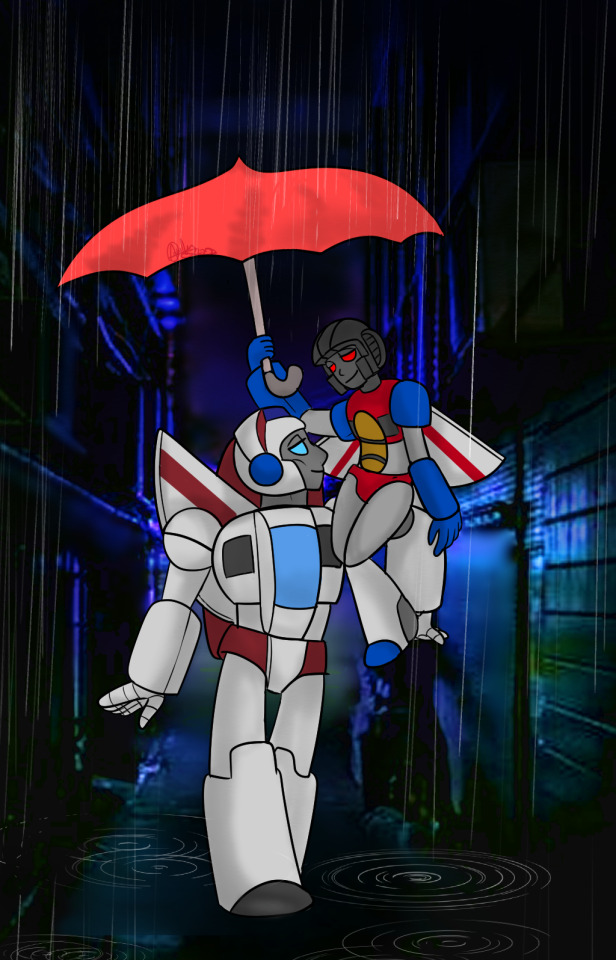
This fabulous art was done by Anluz. Check out more of her work on twitter, or buy her a kofi!
Welcome to the SkyStar Smut Exchange 2022!
Yes, we are doing it again! Having (mostly!) caught our breath after last year's fabulous smut exchange, we feel it's time for another round of stories, art and podfic celebrating the passion between our fave Seeker and Shuttle pair! Details below:
This year's schedule:
Sign-ups: January 15 - 29 (close at 11:59 PM PST)
Assignments go out: January 31
Check-In: We will check in with you on February 19-20 to make sure your assignment is on track.
Gift completion deadline: March 13
Posting is March 19-26: You can post SFW promos of art to Tumblr, and according to Tumblr’s guidelines you can post NSFW text, so fic should be fine. You can post your completed art on Twitter without having to censor it, and you can post uncensored fic and art on AO3. The AO3 collection is SkyStar Smut Exchange 2022. It will open for posting when gifts are due. If you tag the Tumblr/Twitter account, we’ll reblog/retweet your posted gift.
All gifts MUST be posted by March 26.
Please let us know as soon as possible if, for any reason, you need to drop out.
Rules for sign-up/prompts:
All participants must be over 18. Yes, mods will check your social media and make sure.
Fill out the questionnaire below. We’ll need either your Tumblr blog name, twitter username, or email so we can contact you with details of your assignment.
Please provide a minimum of 3 prompts, but preferably more. The more prompts you provide, the easier it will be to fill them!
Rules for filling prompts:
Gifts can be art, fic, or podfic! Art must be lined and colored; fic must be at least 1000 words. Podfic must be of a fic that is at least 1000 words, and recorded clearly.
You MUST fill at least one prompt. But you CAN fill multiple prompts for your giftee if you wish!
Be kind! We’re all here for horny reasons, but sometimes folks aren’t into the same stuff. Remember Kinktomato: Your Kink Is Not My Kink (And That’s Okay). The assignments are made randomly, but the mods will look them over to make sure no one was writing a kink they aren't comfortable with as per their entry survey. If you really don’t want to write any of your giftee’s prompts/kinks, please contact us and we’ll see if we can swap your assignment.
Be considerate! Please include tags and/or content warnings for common triggers (eg dubcon, gore, etc).
Please fill out the form below if you’re interested, and feel free to DM us if you have any questions! The exchange mods can be contacted through their Tumblr or Twitter accounts, or through the accounts specifically for the exchange. We look forward to hearing from you!
Your Friendly Moderators:
Dark Star of Chaos (they/them):
@darkstarofchaos on tumblr
@DarkStarArt1 on twitter
Grayseeker (she/they):
@grayseeker on tumblr
@grayseekerfic on twitter
Official Exchange Accounts:
on tumblr
on twitter
AO3 collection link
Happy smutting! Please reblog to spread the news! :3
SIGN-UP FORM HERE >> https://forms.gle/DPcXsrRacYd6jGTS7
28 notes
·
View notes
Text
I saw a post talking about how Terry Pratchett only wrote 400 words a day, how that goal helped him write literally dozens of books before he died. So I reduced my own daily word goal. I went down from 1,000 to 200. With that 800-word wall taken down, I’ve been writing more. “I won’t get on tumblr/watch TV/draw/read until I hit my word goal” used to be something I said as self-restraint. And when I inevitably couldn’t cough up four pages in one sitting, I felt like garbage, and the pleasurable hobbies I had planned on felt like I was cheating myself when I just gave up. Now it’s something I say because I just have to finish this scene, just have to round out this conversation, can’t stop now, because I’m enjoying myself, I’m having an amazing time writing. Something that hasn’t been true of my original works since middle school.
And sometimes I think, “Well, two hundred is technically less than four hundred.” And I have to stop myself, because - I am writing half as much as Terry Pratchett. Terry fucking Pratchett, who not only published regularly up until his death, but published books that were consistently good.
And this has also been an immense help as a writer with ADHD, because I don’t feel bad when I take a break from writing - two hundred words works up quick, after all. If I take a break at 150, I have a whole day to write 50 more words, and I’ve rarely written less than 200 words and not felt the need to keep writing because I need to tie up a loose end anyways.
Yes, sometimes, I do not produce a single thing worth keeping in those two hundred words. But it’s much easier to edit two hundred words of bad writing than it is to edit no writing at all.
115K notes
·
View notes
Photo
D'awww! 🥰 Quintuplets.

[Image ID: A coloured drawing of Skyfire and Starscream holding a set of baby Aerialbots. Skyfire holds Air Raid, Silverbolt and and Fireflight. Starscream is holding Skydive and Sling Shot. Air Raid is climbing up Skyfire’s shoulder and onto his wings. Silverbolt looks nervous, pressing his fingers together, Fireflight is distracted and reaching out of Skyfire’s grasp for a butterfly. Skydive is also curiously watching the butterfly. Sling Shot is excitedly calling out while waving his arms in the air. Skyfire looks down lovingly at the little sparklings, while Starscream is looking down raising an eyebrow at Sling Shot. The background is a sort of fuzzy pink pattern. End ID]
I forgot to post up my SkyStar Secret Santas! This one is for @tackytacs. Do hope you enjoy!
#Transformers#Maccadam#Skyfire#Starscream#SkyStar#Aerialbots#Silverbolt#Sling Shot#Skydive#Fireflight#Sparklings#Air Raid
210 notes
·
View notes
Text
Prolificity: Toward a New Definition

Welcome to the third entry of my blog series on How to be a Prolific Fan Author! If you've read the previous two entries, you'll know this isn't going to be a straightforward 'how to' series, despite the name. It's more about me figuring out how to become prolific, and bringing you along for the ride!
In a previous entry, I wrote that Step One of my journey has been to escape the comparison trap. That is, to disentangle my idea of 'prolific' from my mental image of some other writer who seems able to perform feats of productivity that I can only dream about. We're talking about the Nora Robertses and Stephen Kings of the world, only in a fandom context.
I think it's worth noting, by the way, that those supposedly 'prolific' writers may not see themselves that way. The word counts and posting schedules that I find so baffling and miraculous might not seem like a big deal to them at all. And there's a reason for that:
The word 'prolific' has no set definition.
Technically, it means "an artist, author or composer who produces many works." But what does that mean, exactly? How many is 'many?' When it comes right down to it, the only way to define 'many' is through comparison.
At the time of this writing, I have 35 stories (418,548 total words) published on Ao3. Is that 'many?' Sure it is, at least in comparison to the number of published works I had in 2014 when I was first starting out under this pseud. But there are authors who have published hundreds of fics in that time-frame. There are also authors who have published far fewer; they might even consider me 'prolific!'
So where am I going with this?
Well, the bottom line is that there is no external measurement that can define what it means to be Prolific. There is no particular word count, no specific posting frequency, and no number of published works that will bring any of us past the magic threshold of Prolificity. It's like chasing after a rainbow; the goal-posts will always move as you do.
Honestly, the word 'prolific' is kind of toxic. It relies on comparison in order to have meaning, so it invites us to compare ourselves to others, thus sowing the seeds of insecurity and competitiveness. And yet here I am, blogging about how to become *more* of this Prolific thing.
Why is that, you might ask?
Well, I think there are two approaches one could take. If the word 'prolific' makes you feel bad about yourself (as it does me), you could nuke it from your vocabulary and replace it with something healthier. Or you can reclaim the word and make it mean something that actually works for you. That's what I'm trying to do.
I'm taking that second approach of redefining Prolificity in a more personal sense. I'm asking myself: what does MY Prolificity look like? What does it consist of? How can I measure it? Can I assign a threshold beyond which I can feel free to call myself Prolific, by my own definition?
As soon as I started looking at Prolificity that way, rather than in the "why can't I be more like THAT writer over there" kind of way, I quickly realized that it's not just about word-count. Writing many words and publishing frequently might be the cornerstone of Prolificity if you're writing for money, but fandom is more about community.
I realized I need a definition that reflects fannish values, which encompass so much more than just how many words you write or how often you post. And that's what my next entry will be about. Fannish values, at least as I perceive them, and how they're shaping my personal definition of Prolificity. In the meantime...
What about you?
Do you consider yourself to be a prolific fan author (or artist, or other creator)? Do you have a personal sense of what Prolific means to you? Have you achieved it, or are you still working on it? I would love to hear about it!
Note: This was cross-posted from my Dreamwidth account, which is where most of this blog series is gonna happen. I will put some of the main posts here on Tumblr, but most of the discussion will be taking place on DW. If you want to join the discussion, you can do so here.
3 notes
·
View notes
Note
today on tumblr, i saw someone ask if they should only write about stuff they know
..puts head in hands
--
It is excellent advice. I, for example, only write about awesomeness.
31 notes
·
View notes
Text
What the Frag is 'Prolific,' Anyway?

Welcome to the second entry of my blog series on Prolificity. (And if you weren't already familiar, you now know to expect Transformers-based swear-words in my blog entries! Woot.)
So... what *does* 'prolific' mean?
I'm going to go out on a limb and guess that you might be like me: you want to be Prolific, and your idea of Prolificity is based on some writer (other than yourself) whom you deem to be Prolific. Maybe it's someone like Stephen King - or maybe it's someone you know. (I'm just assuming you don't know Stephen King. Sorry if that was overly bold of me.) Maybe it's even someone in your own fandom.
You know... THAT writer?
The one who effortlessly posts multiple times a week and never breaks a sweat? Of course you do. Every fandom has at least one. Those are the people I always look to with mingled awe and envy, wondering how the hell they manage to *do* it. And until now, my standard of what 'prolific' means has always been based on those people.
I tell myself, "Hey, if so-and-so can do it, there's no reason I can't." Except, of course, there *are* reasons. The biggest being that I'm a different person, with different needs, interests and strengths - such as writing speed. Not to mention a different life situation, different set of obligations, and probably a different capacity for cranking out the words. (Because news-flash, we all have different capacities.)
For me, Step One of my Prolificity project has been to disentangle the idea of 'prolific' from my mental image of That Writer, who performs seemingly impossible feats of productivity on a daily basis, and to come up with a more personal definition.
I had to ask myself: What does *my* version of Prolificity look like? I knew it wasn't going to look like Stephen King's version, or the versions exemplified by the fan authors I think of as 'prolific,' but a version specific to myself. I'll talk about how I came to that definition, but for now... what about you? What is *your* definition of 'prolific?' Is it a certain word-count? Posting at a certain frequency? Or is it a vague sense of 'wanting to be more like so-and-so?' Add your comments! I'd love to hear about it.
Note: This was cross-posted from my Dreamwidth account, which is where most of this blog series is gonna happen. I will put some of the main posts here on Tumblr, but most of the discussion will be taking place on DW. If you want to join the discussion, you can do so here.
3 notes
·
View notes
Text
How to be a Prolific Fan Author this Year

Happy New Year!
And please do forgive the click-baity title. As you'll soon realize, "how to become prolific this coming year" is actually something I'm trying to figure out... for *myself.* It's something I've always struggled with: never feeling satisfied with my level of productivity as a writer. I want this year to be different, and I want to invite you along for the journey!
What's that going to look like?
Well, it's going to look like me overcoming one of my *other* hurdles, which is my seeming inability to maintain a stable blog presence. I tend to start blogs, then abandon them when the task begins to seem overwhelming. So I'm going to try and avoid that sense of overwhelm by setting modest goals for myself. I'll try to post a weekly update on how my Prolificity Project is going, even if it's just, "Aaaaargh!"
What else can I say about it...?
Well, one thing I *want* to say is that I chose the title words very deliberately. It says "prolific *fan* author," emphasis on "fan," because most of us do this as a hobby, and I think that for most of us there's also a social, community aspect to why we write the stories we do.
So this blog series is going to have a different emphasis than a blog series about how to become a prolific *paid* author. It's not going to be about how to write 5,000 words per hour, how to release a novel per month, or how to write for a particular market. There are lots of great places to find that kind of information if you want it, and if going pro is your goal. (I even have recs.)
But here, the emphasis is going to be on writing *purely* for love, rather than for money, popularity, hits, kudos or clout. It *is* going to be about how to write more of what you love, yes - but it's also about having fun while doing so. Also about building community and forming heartfelt connections with other fans who love the same things you do. And about *balance,* since most of us fan authors* need to spend big chunks of our lives on things that aren't fandom-related.
In short...
...the emphasis is on satisfaction: how to achieve a level of productivity you feel satisfied with, without burning yourself out. Are you with me? Excellent! Onward, I say!
Note: This was cross-posted from my Dreamwidth account, which is where most of this blog series is gonna happen. I will put some of the main posts here on Tumblr, but most of the discussion will be taking place on DW. If you want to join the discussion, you can do so here.
2 notes
·
View notes
Note
Is it true that aspiring writers should first write for themselves?
Aspiring writers should write. I don't think it matters much who they're writing for as long as they're writing. And if they do that, then pretty soon they stop aspiring and just become writers.
2K notes
·
View notes
Text
COMFORTEMBER 2021
Hey guys!!! Comfortember 2021 is upon us. WHO’S PSYCHED CUZ I AM 🙌🏼
Comfortember is a month-long challenge during the month of November and the focus is all things comfort. Whether in the form of fluff, recovery, post-whump, or all of the above, this challenge is guaranteed to give you those soft, fuzzy feelings that make you want to curl up under blankets in front of a fireplace ☺️
This challenge is open to all fandoms and it’s open to all forms of art, not just fanfiction. Please use the #comfortember tag when you post so all the fics will be in one place!
For anyone posting on AO3, the link to this year’s collection is here!
AND THE PROMPTS ARE:
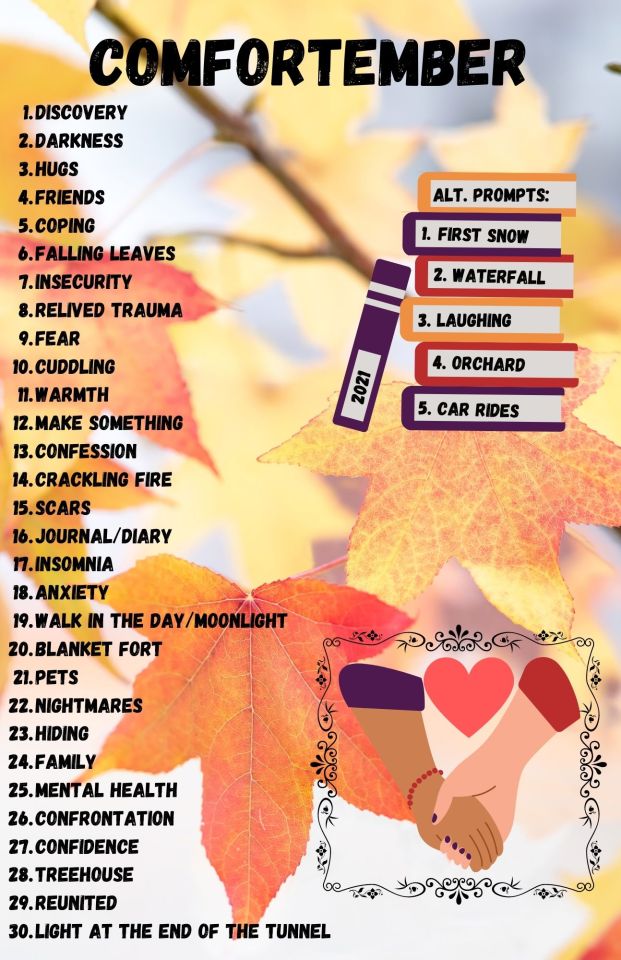
I decided to post the prompts earlier this year to give you guys more time to plan, especially since it’s coming after @whumptober2021 and @sicktember (the first Sicktember is this September!)
The 5 prompts off to the side are the alternatives. If there is a prompt you don’t want/aren’t comfortable using, please use these as a substitute 💜
Please refer to my FAQ for any questions but please send me an ask on this blog or my main blog @baloobird if you have questions about anything!!!
Thank you guys so much, it’s because of YOU that i’m able to do this again and I’m so freaking excited!! I hope you guys enjoy the prompts and have fun with this!!! 💜💜💜💜💜💜💜💜💜
Please share this and spread the word, the more comfort, the better 🙌🏼🙌🏼🙌🏼
*Adding the prompts under the cut in the copy/paste format for easier accessibility*
Keep reading
2K notes
·
View notes
Photo
The accuracy! 😅
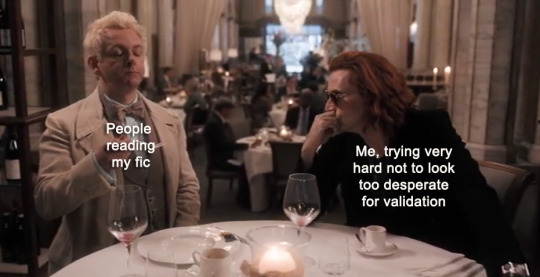
134K notes
·
View notes
Photo
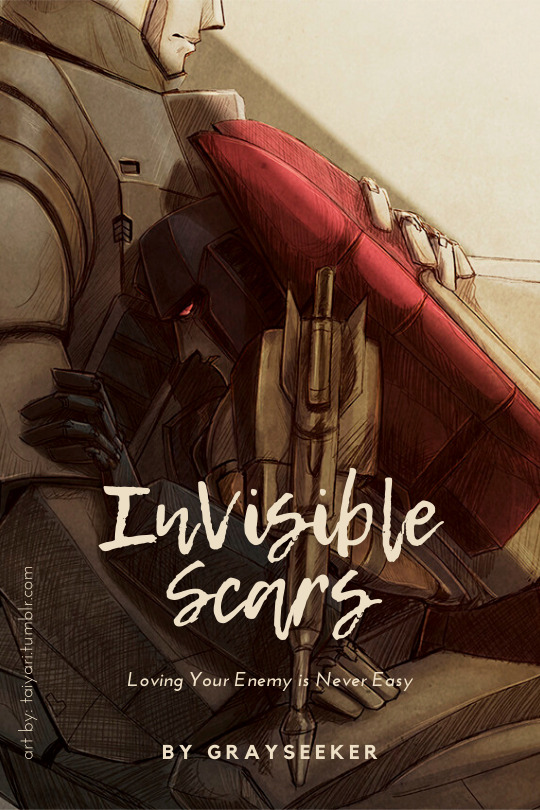
I did it! I did it…!
Invisible Scars is now fully posted and ready to be enjoyed in its entirety.
Which feels like the end of an era, considering I began this story in 2016. That’s a long time to be working on something. But I’m glad I stuck with it, and I’m so proud of how it turned out.
Invisible Scars
Summary:
Loving your enemy is never easy. Reunited on Mars, Starscream and Skyfire have one chance to mend their fractured relationship even as the war closes in, threatening to wrench them apart forever.
Excerpt:
“What is that?”
“What’s what?” Starscream glanced down, following the direction of Skyfire’s gaze, but saw nothing unusual.
With shaking hands, Skyfire pried Starscream’s hands away from his chest. He ran his cloth in a diagonal line from Starscream’s shoulder to his waist and then rocked back, staring at what he’d uncovered.
Belatedly, Starscream realized what he had to be looking at. “It’s a scar,” he snapped. “What does it look like?”
“I can see what it is,” Skyfire said, his voice suddenly cold. His affable expression had melted away, leaving granite in its wake. “Who did this to you?”
Read Here:
https://archiveofourown.org/works/10858164/chapters/24113538
49 notes
·
View notes
Text
Writing Advice
I’m gonna throw in some of my favourite pieces of writing advice, since you guys liked the last post on the subject.
1. Master the scientific method, and apply it to your writing - not only your work, but your actions as a writer, like where and when you write. Take the time to figure out what works for you, and how it works. That way, when something stops working, or you can’t do it any more, you’ll have some idea on how to address the problem.
For example - I write best in the morning, as a rule, before I get tired, but I do some of my best dialogue in the evening, so if I’m stuck on dialogue I’ll come back to it after dinner. If I have a busy morning and can’t write then, a little nap may help to reset my brain creatively. If I can’t do that, watching or reading something particularly well-written can help inspire me to emulation.
2. If you get really stuck, especially in a high-octane part of the narrative, go back and check how long it’s been since your character(s) last had a chance to eat, sleep, or go to the toilet. Even if you didn’t explicitly describe the action, a sentence like ‘later that day’ or ‘the next morning’ tells your readers ‘yes, they’ve had chance at a nap and a whizz’. If it’s been too long, you and your character may both have Action Fatigue, and need a down-time scene to reset.
(One of my favourite Star Trek novels of all time features a character finding herself in the position of having to ask THE Commander Spock for permission to tinkle while on bridge duty. By the time she comes out, the Klingons have arrived. One of the best uses of ‘the bladder waits for no narrative’ I’ve ever read, and it worked perfectly as a brief break in the intensity followed by ‘oh no, now it’s worse’.)
3. The Wall. The Wall was something we got warned about a lot in the early days of NaNoWriMo, though I don’t see it as much these days. Basically, at a point between 18K and 25K in a novel-length endeavour, most people (especially beginning writers) suddenly hit a wall and don’t know what to write next and they hate their story and everything is terrible. In NaNo, this is referred to as ‘Week Two’, and nobody likes Week Two. It’s the point at which most people quit.
This is perfectly normal and happens even to published authors. It’s basically the point at which you can’t postpone it any more and you have to shift from Act 1 (setup and introductions) to Act 2 (progressing plot), and it’s harder to do and suddenly you go from coasting along enjoying the flow to hitting the part where you have to pedal uphill. It’s the single hardest part of the whole writing process, for a lot of people. All I can tell you is that if you do that hard pedalling, the second coast is going to be even better and more fun, and we all have to do it.
4. Save everything. Even if it’s bad. You never know when, years later, you’ll remember some idea out of the blue and be all ‘WAIT that would be the perfect b-plot for this story I’m writing now how did it go again?’ and have to go digging. (This has happened to me multiple times. An idea that didn’t work for one story might be perfect for a different one. Don’t lose it.)
2K notes
·
View notes